Three of Cups
A conversation with Emily St. James about friendship, compersion, AMC's Rubicon, famous shipwrecks, and Emily Stone.
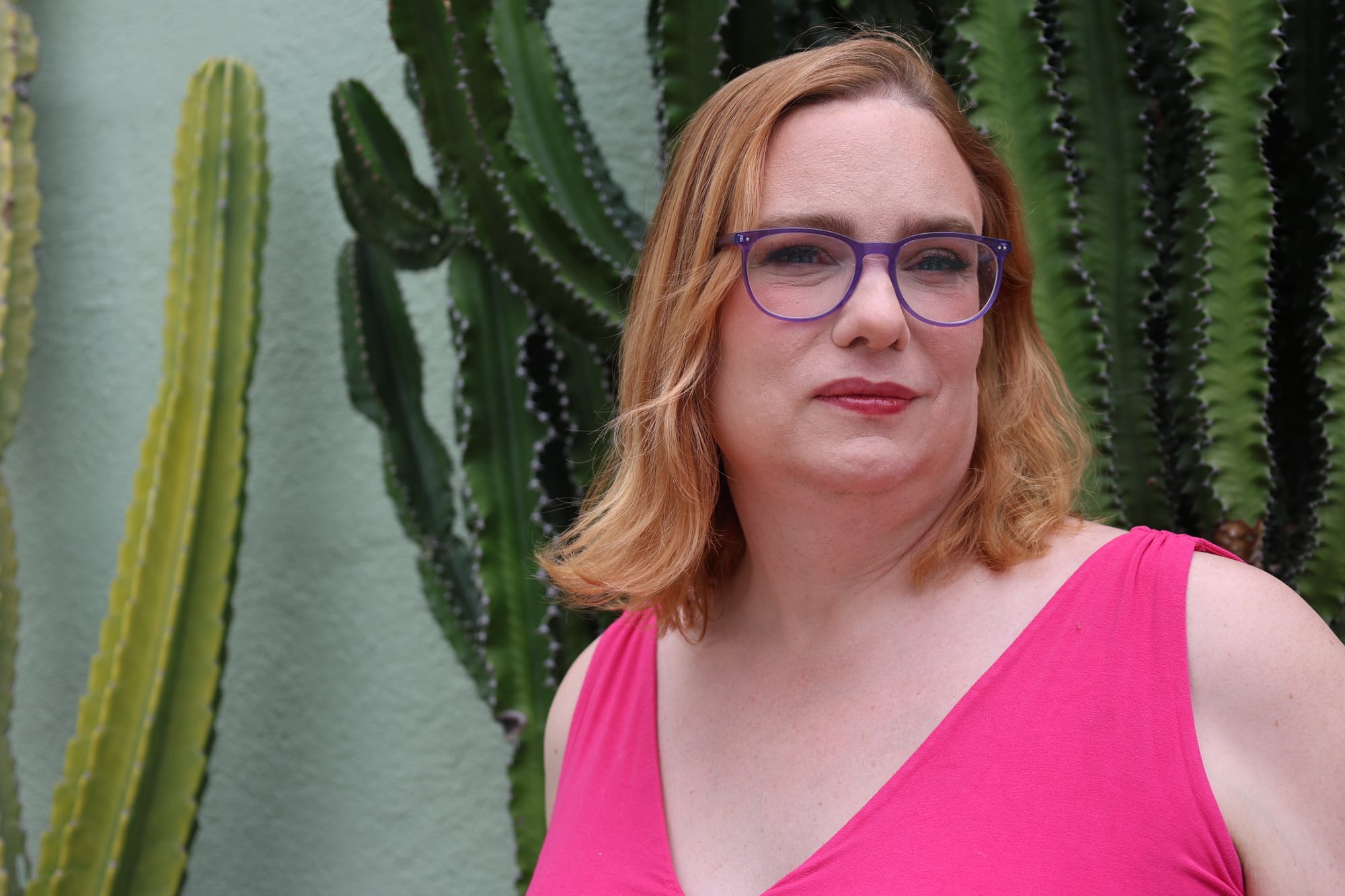
Three of Cups Playlist
My father recently sent me six boxes worth of notebooks and journals I’ve kept since I was six years old. Among them, I found a binder in which I had printed every single email my best friend and I exchanged during college. I was certain that future scholars would want to read the correspondence between two best friends who eventually became very important people, as if we would one day be our generation's Virginia Woolf and Vita Sackville-West. Virginia and Vita were literally in love and sexually involved (my friend and I were literally in love, but not sexually involved), but when I read the letters between Vita and Virginia next to ours, it can be hard to distinguish between them.
On January 21, 1926, Vita Sackville-West wrote the following in a letter to Virginia Woolf, “I miss you even more than I could have believed; and I was prepared to miss you a good deal. So this letter is just really a squeal of pain. It is incredible how essential to me you have become.”
On March 21, 2004, I wrote an email to my friend: “My love and appreciation for you abounds. Without you in my life, things would be dismal and gray.”
When I was a teenaged girl on the precipice of becoming a young woman, friendships were where I could be the fullest version of myself. Friendships were where I found solace and escape, where I pushed boundaries and learned my limits, where I took risks and put myself out there knowing there was a small handful of women who felt like home to me and who would love me no matter what.
The Three of Cups is about friendship, joy, collaboration, creativity, and community. This card encourages the querent to tend to the emotional needs of others, and to acknowledge our own need for platonic intimacy.
As we get older, responsibilities, careers, children, and romantic relationships often take center stage (I would argue, to our detriment). The Three of Cups reminds us that friendship is not only necessary, it is vital to the enjoyment of a full life. For this week’s newsletter, I interviewed my friend, Emily St. James. Emily and I met a couple of years ago, but she has quickly become one of my best friends.
Emily is a brilliant writer. She used to be one of my favorite TV critics, and now she's one of my favorite writers period. She just finished writing for season 3 of Showtime’s hit show, Yellowjackets, and her novel, Woodworking (I read early drafts and am COMPLETELY OBSESSED) will be published in early 2025.
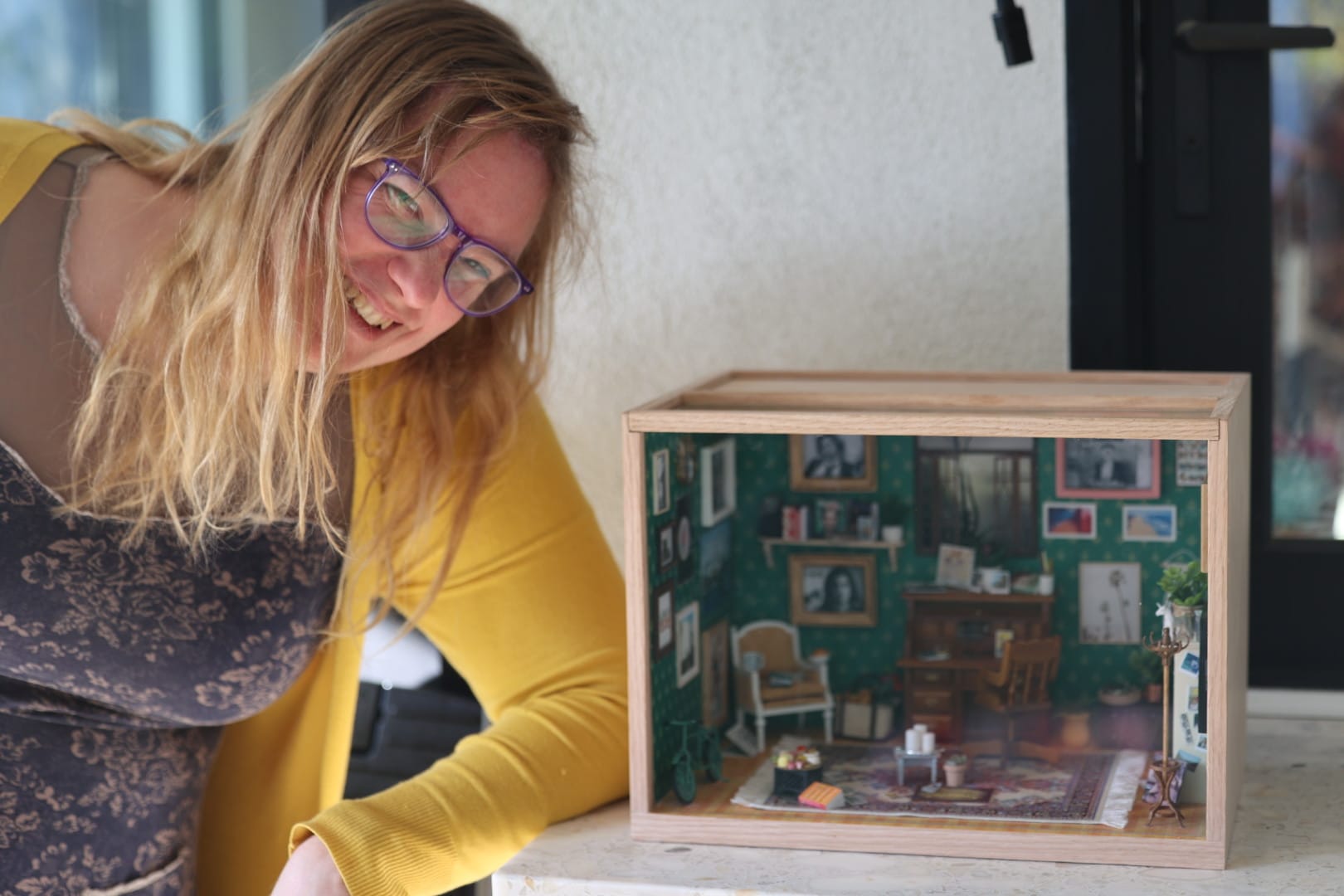
In spite of the fact that we became friends when we were grown, Emily and I managed to infuse our grown-up friendship with plenty of teen girl antics. I made her a romantic friendship present, she taught me all about the Q-Anon style conspiracy theories of Taylor Swift. I love her a lot, and you will too!
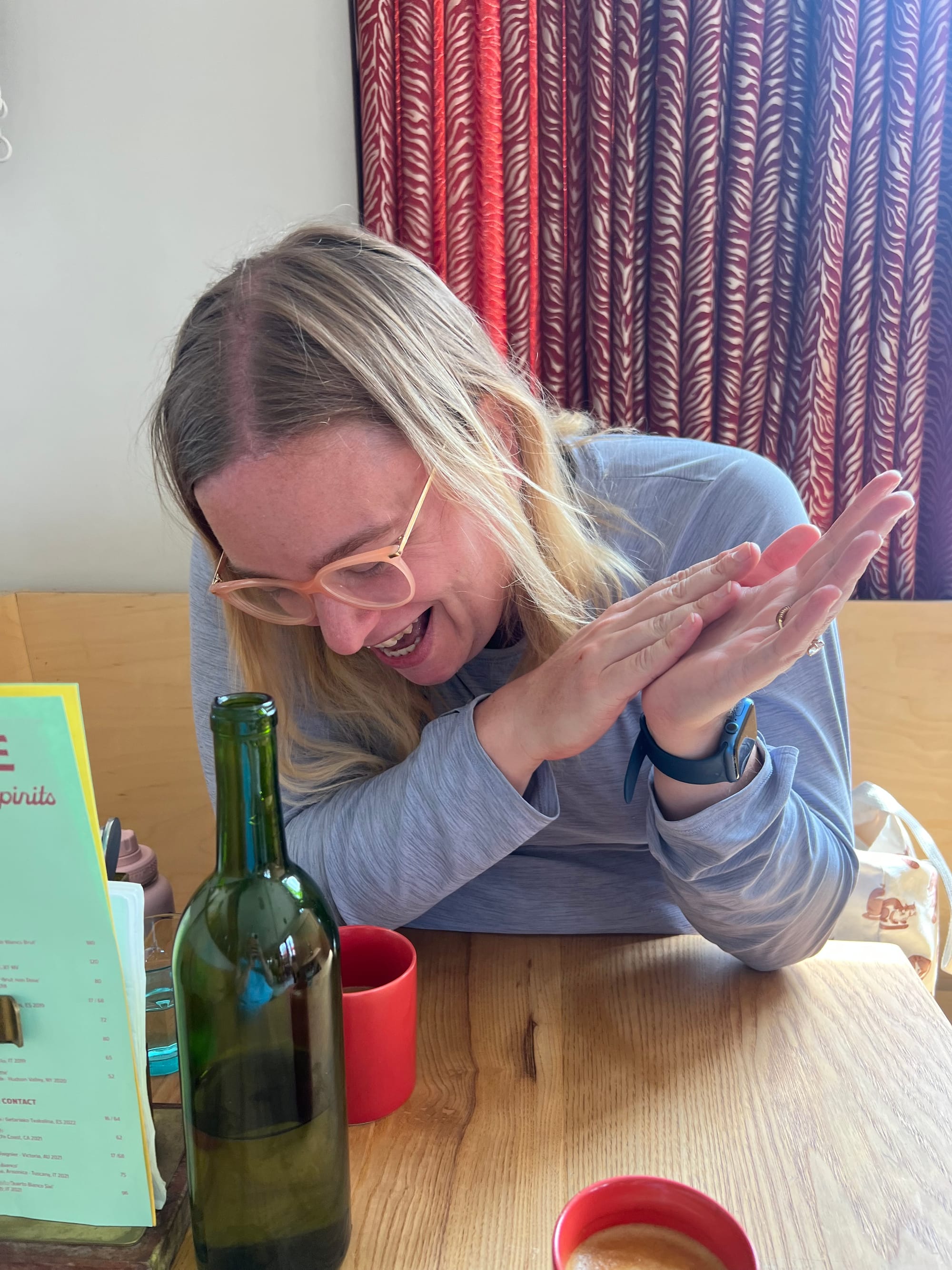
Emily laughing at just how little I understand about the Swiftie conspiracy community.
This interview has been edited and condensed for clarity. Enjoy!
Eli: My dear friend. Here we are discussing the three of cups. Friendship.
Emily: In my favorite tarot deck, three of cups is three otters playing.
Eli: That makes me think of us.
Emily: We're otters?
Eli: We are each three otters in a trench coat. Making friends as an adult is so different from making friends as a child. What were your friends like when you were a kid?
Emily: I grew up in a town of 750 people. My graduating class in high school was 16. So I was just thrown together with all of those people. And they were my friends. You know, that was just how it was. Once I got to high school, I started meeting people from other towns. And I made some really good friends there. My best friend in high school did not live in the town I grew up in, but for the most part, when I was a kid, I was just friends with people I knew from school or church. And it was the same group of people for most of my childhood. I think at the time I would have said we were very tight. I think if I like walked into a bar and met up with some of them, I would still have a friendly rapport. But certainly, the friendships I have made since then have felt more meaningful to me. But honestly, it's friendships I've made the last five years that have felt the most meaningful.
Eli: Because of me.
Emily: Because of you. Yeah, that's what I meant. I put five years in there just to give myself an umbrella. But yeah, it's just you.
Eli: I mean, sorry not sorry to any of Emily's other friends. Can you tell the story of how we became friends? I like to hear it.
Emily: So in the year 2009, AMC debuts a show named Rubicon. And I write about it for the AV Club, one of my early prestige TV gigs. I came to really love that show.
Eli: You were one of the only people who watched it, let alone loved it.
Emily: The vast majority of the writers room followed me on Twitter. And at the time, that was still novel for me. I'd been on Twitter for maybe six months. I just had started to meet TV writers and thought they were cool. And so you followed me. And Zack followed me. And I followed both of you back. And then I would watch your interactions on Twitter and be like, is there something going on here? I was shipping you from afar. And then like, you know, I would see the names of people who wrote on Rubicon pop up on shows and be like, oh, yeah, this has that Rubicon magic.
Eli: That’s hilarious.
Emily: I was following your career from afar. And of course, I was also following FX’s attempts to make Y: The Last Man into a television show, which I think they tried for like a decade. And then when they hired you, I was like, well, that's gonna be fine. It's gonna have that Rubicon magic.
Eli: Every time I sit down to write, I just access the Rubicon magic.
Emily: The premise of Y: The Last Man interested me as a trans woman, because within the logic of its universe, I would be dead. And I didn't like that. I understood that it was tied to this chromosomal thing. The comic, which I had loved, was very limited in its view of how chromosomes worked. And I was like, well, that's a premise that could barely work in the time that the comic was published. And now people are gonna see it's a lot more gender essentialist. FX knew that, they were ahead of that, to their credit, when they were trying to sell the show. That's when I started intersecting with it. They started bugging me all the time, can you write about this show, and how we're trying to make it not transphobic? And I was like, I'm not sure that's possible FX. Yeah. And so finally, I just backed off enough that they went to some cis journalists to write that piece.
Eli: Then you asked a really intense question at the TCAs.
Emily: Yeah. For some reason I went to the TCA session.
Eli: I just want to state for the record, and we'll get to this part, but I agree that the premise was gender essentialist. Brian K Vaughan and Pia Guerra, who created the comic, were very much on board with and encouraging of the changes I made. They wanted gender treated in a much more nuanced way than it had been in the early 2000s, the first time around. Okay, keep going.
Emily: So I went to TCA, and I asked some questions of John Landgraf. And some to the folks on the show, I think.
Eli: You asked a question that was essentially something like, “How can you live with yourself?” I’m kidding, but that was the vibe.
Emily: I still have access to those transcripts, I’ll fact check that. But ya know, I asked some questions that were probing let's say—
Eli: It was clear to me in your questions that you were definitely probing for how exactly we were going to fix a concept that was problematic.
Emily: I think they sent us the pilot. And I watched that, but of course, the pilot doesn't answer any of the questions about how the show's gonna handle that subject matter. Because the pilot is about the moments before this event happens. So I wanted those questions answered. And for whatever reason, I don't remember this session very well. Clearly, the answers that y'all gave were sufficiently interesting to me that I was like, well, FX wants me to write this, fuck it, I’ll write it. So I reached out to them and was like, okay, all right, I want to write about this show and gender stuff. Can I talk to Eliza Clark? At one point, they referred to you with they/them pronouns. And I was like, oh, that's why. I think they were talking about a group of people but I interpreted that as oh they use they/them pronouns.
We talked for like a half hour. It was some morning when I did not want to get up that early and I was not at my best. But I really liked the answers you gave. And then at the end, I just was like, why do you care so much? You gave an answer, but you were also like we can talk more about this off mic, basically. And then I went to Chicago. I don’t remember why I went to Chicago. You wrote me an Instagram DM that I read in the airport on the way to Chicago. And I read that and was like, I gotta write this woman an email. Why did I go to Chicago? This remains a mystery.
Eli: You thought, I gotta get out of this town.
Future Emily, who is fact-checking this article: I went to a dear friend’s wedding in Michigan! Chicago was but a ruse. I was actually going to Michigan but flying through Chicago, a thing I sometimes do.
Past Emily: I was sitting in a diner in Chicago, and I wrote you the world's longest email. And then I wrote the article. And the article, I think, was very interested in the idea of what the show was trying to do. I wrote about it through a very supportive, I’m-more-intrigued-than-I-thought-I-would-be lens. And then, I wrote my favorite transition of all time, which was just the word “But.”
Eli: You had really potent criticism that I agreed with.
Emily: Basically I wrote, this might be a thing that can only ever get to a B plus, because of this aspect that is in its DNA, but I think this is the best version of it. But also, I don't know if it can get past the fact that its DNA has this thing in it that's very hard to overcome. I watched the rest of the show and really liked it.
Eli: I remember you tweeted something about Ashley Romans’s character 355 being your best friend.
Emily: I do still think that we should be best friends.
Eli: She’s amazing.
Emily: I put it on my runners up for my top TV list that year. And by that time, which was like three months later, I had to write that you were my friend. That was like a disclaimer.
Eli: I know. I loved it. That was my plan the whole time.
Emily: I always do the Runners Up list alphabetically, and Y: The Last Man came last. My editor on that piece was like “We can't end on Y: The Last Man, because then the article just ends with you saying you made a friend.” So we did reverse alphabetical order for that reason.
Eli: But that's a great way to end an article! And it's also exactly what we're talking about in this interview. I remember the first time we got coffee, and I was really nervous because you had written something that was both totally fair and also really smart and I agreed with it, but it was definitely critical. I generally prefer to have just, you know, wild reckless affirmation, adoration. That's really what I'm looking for. Just no criticism at all.
Emily: Pure love and joy, pure love and joy.
Eli: But we had a really great time, and I think it only took me a couple of months to start like making you presents.
Emily: Yes. That happened.
Eli: The very first tiny room I made was for you.
Emily: That’s true. And I have it on my desk to this date.
Eli: I feel like I need to make you another one. I got better at making them. You got the first one, which is really very special. But I feel like if you were to get one now, it'd be even better.

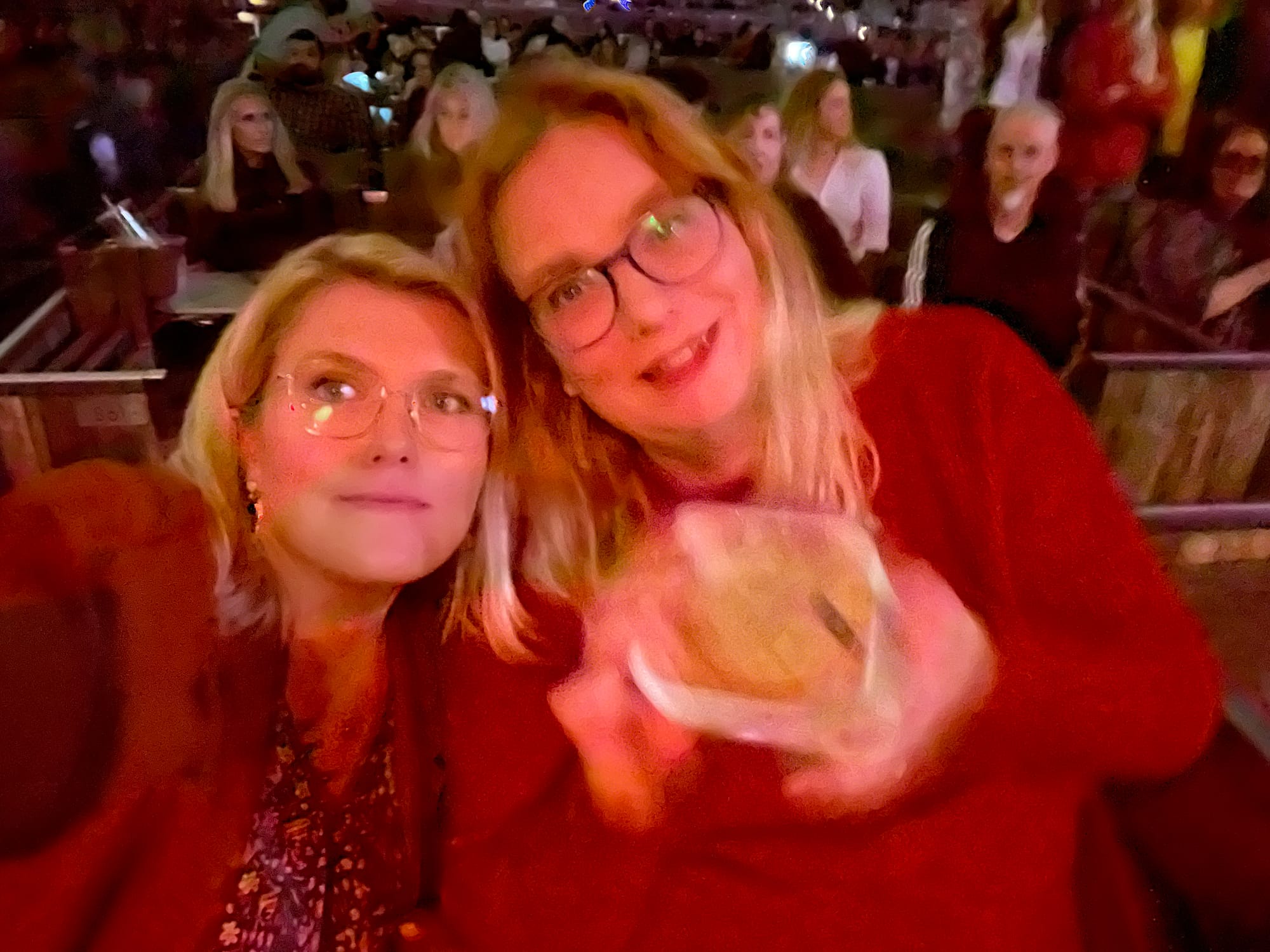
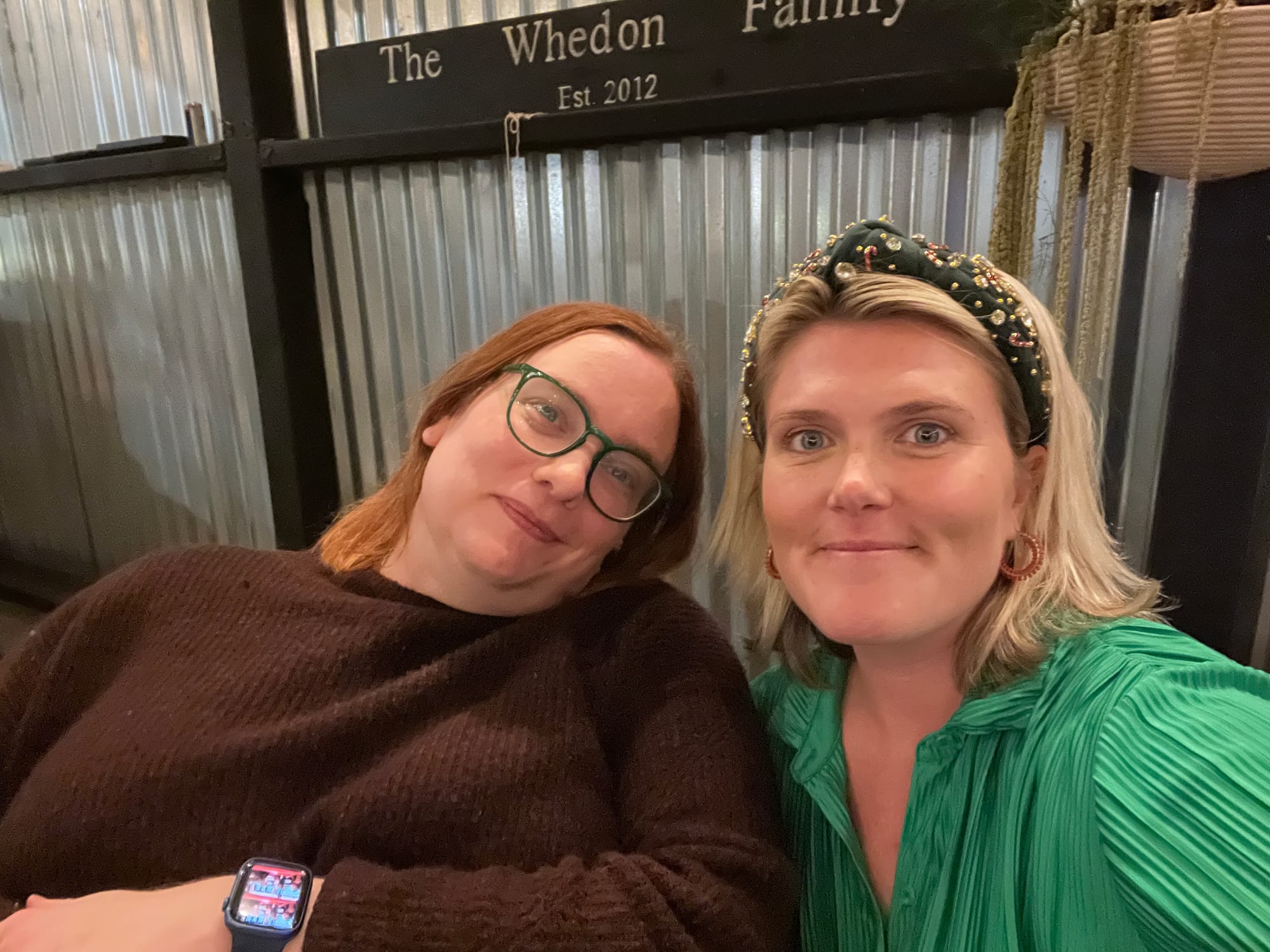
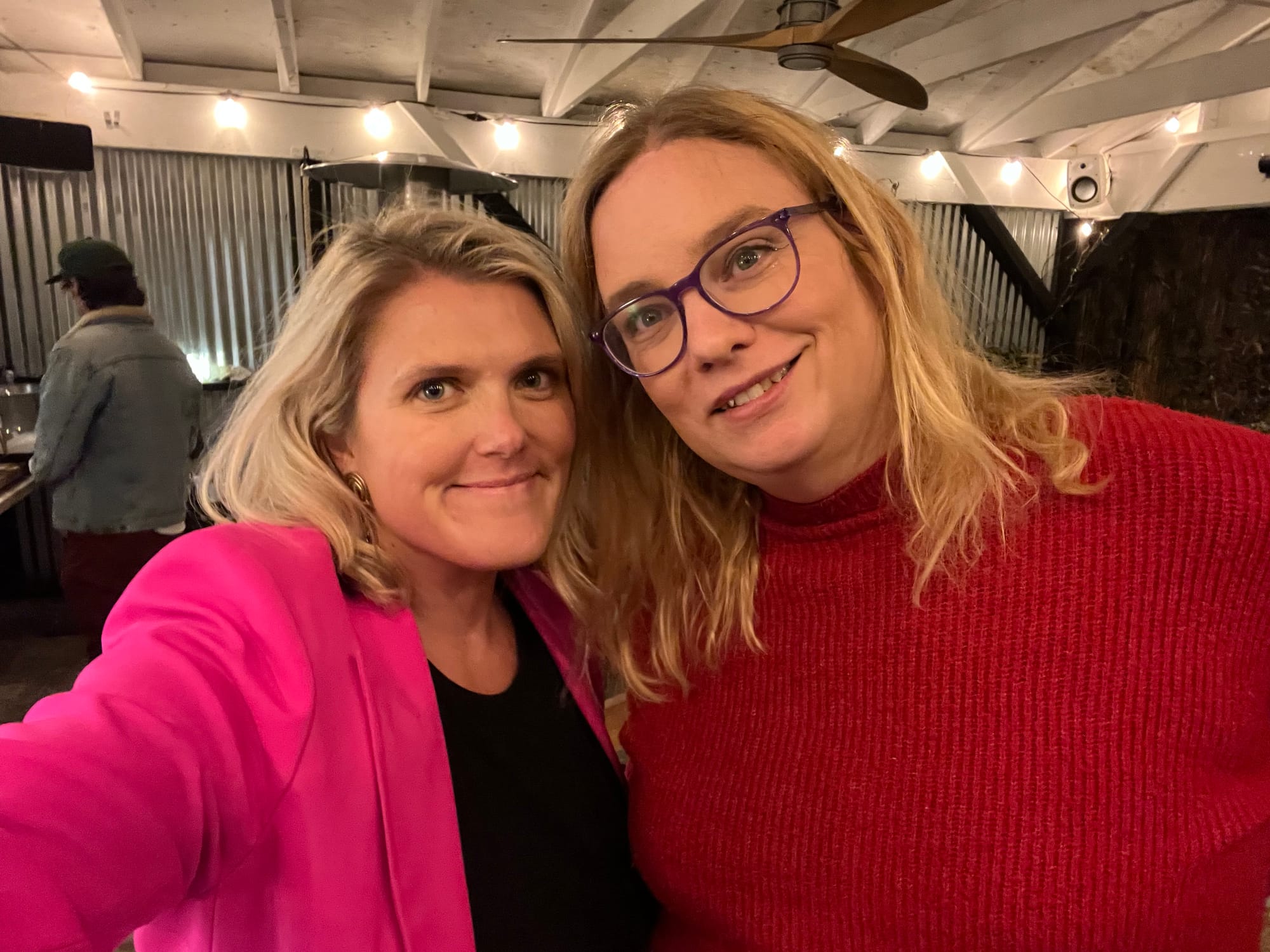
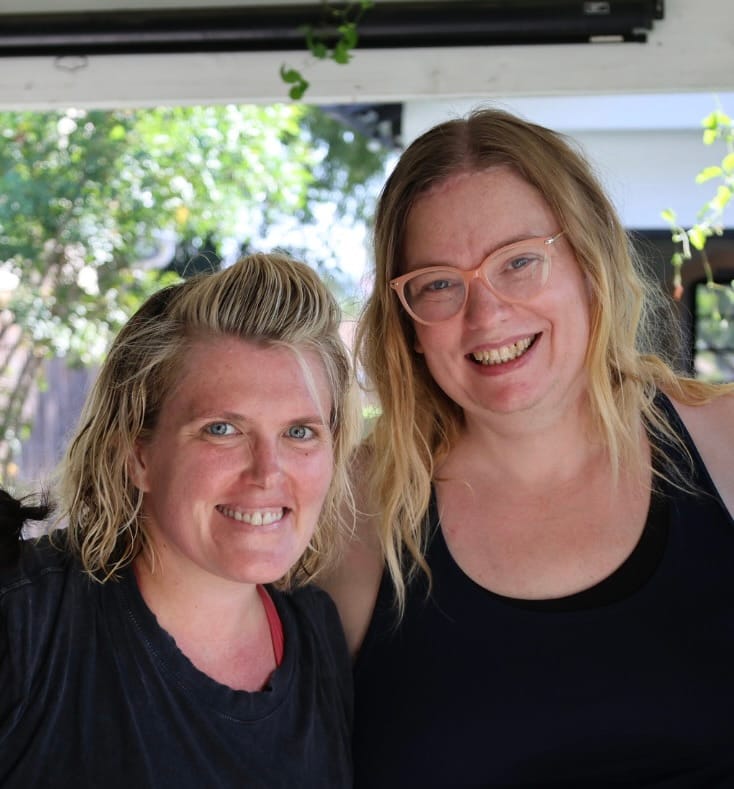
Emily: I was in this very weird place in my life where I was still ostensibly a journalist, frequently covering the television industry. One of the rules of journalism is you don't make friends with people who are sources. Obviously journalists don't always follow that rule. If you've seen anyone who covers politics, you'll know that's true. But I tried to stick to it. It was especially complicated because my wife and I were trying to become TV writers, which is very hard to do if you're deliberately not making friends. We set up some boundaries for ourselves. You know, we had people that we felt we were friendly with, but you were like one of two people where we became legit friends.
Eli: I mean, I threw your baby shower.
Emily: You threw my baby shower. I was also trying to shift my journalism focus. I was trying to get out of journalism entirely. It just felt like a dying industry to me. So I left to go to the famously stable film and television industry.
Eli: And right before a strike!
Emily: I was also in a space where I had, prior to my transition, mostly made friends with journalists, and mostly in a very, like, let's get the hot goss about all the TV shows kind of way. A lot of my guy friends, who are still guy friends of mine to be clear, were also critics. We would just talk about TV trivia and minutiae. The second I came out and started taking estrogen, that stopped being something I wanted to talk about.
Eli: That’s hilarious. First hit of estrogen and you’re like, no more trivia for the love of God.
Emily: I had constructed a persona as a person who didn't exist. The second I started taking estrogen, my brain was like, we want to hang out with other women. And we want to hang out with other women in contexts where we can talk about being creative. Most of the women friends I've made have been artists of one form or another. My other best friends tend to be writers or actors, people who are trying to create things. And that's not to say I don't have journalist friends. I have a lot of good lady journalist friends. But it is very much part of kind of a prior version of myself that I'm struggling to figure out what to do with. But I think I'm getting there.
Eli: We had a conversation early on in the beginning of our friendship that I found really fascinating where you were talking about how you kind of missed out on having some of the teen girl friendships that you have as a teenager. You know, I think you told me that around the time I made you a romantic, tiny room present. As an ostensibly straight woman, I think of female friendship… I’m sure my husband would love to hear me describe myself as “ostensibly straight,” but anyway…
Emily: I'm just gonna cut you off there and say that you can be as non-straight as you want to be and still be in a monogamous, heterosexual relationship and that doesn't invalidate whatever's happening. Your sexuality is “whatever is happening.”
Eli: Ha. Yes. No. I mean, I think that ostensibly straight is a pretty good term for me. Anyway, I've always thought of female friendship as deeply romantic. I’ve always loved to spend time with my girlfriends and talk for five hours about the inner workings of our, you know, mental illnesses. I love to make presents for friends. You know, far more than I've ever made presents for my husband—
Emily: First of all, you should give your husband a present.
Eli: I do give him presents. I made him a tiny room, but not until I’d made them for like twenty women.
Emily: One thing I find fascinating is: all of the women I've made friends with as an adult, I've been like, I need to go shopping. I need to buy new clothes, because I'm just buying stuff on Amazon or I go to Target and try something on. And like, my wife will help me but her sense of style is very different from mine. And I just want to go shopping. But when I say that to my women friends, they’re all like, “My shopping era is over.”
Eli: Ha. I was gonna say… you’ve never asked me to go shopping, but I'm currently wearing sweatpants out in public.
Emily: I’m wearing athleisure! But yeah, my best friend in high school was a woman. And it was a weird, complicated thing that threatened to turn romantic. Never did, never quite crossed that Rubicon.
Eli: Never had that Rubicon Magic?
Emily: The Rubicon magic was sprinkled over our friendship. It was one of those things where I didn't know how to interpret it. Because I was a “boy” air quotes, you have to put the air quotes in.
Eli: I’ll put in the air quotes.
Emily: And everyone was sort of like, is this going to turn into… because we were so close. And that also happened to my wife, where people were like, well, of course, they're in love. And I was like, Yeah, I think we're probably in love. And obviously, you know, we fell in love and got married. But people projected an assumption onto these relationships that I didn't entirely know was there. My best friend in high school, who I will call Hannah, was the first person I ever told I was a girl. She was the first person I ever told about some of the elements of the abuse I suffered as a child. She was very strongly in my corner. And then we had the worst friend breakup, you know, and didn't talk for many years. Now we are in a place where we're cordial and I could write her an email, and she'd be like, hello, Emily. And I'd be like, hello, Hannah, but it's very strange. It was never that tight teen girl friendship that I needed or wanted.
Eli: You grew up in a very religious community…
Emily: A very religious community in a very rural area. I was not allowed to express my femininity. Outside of the space I was in with my friend, Hannah, who, to her credit was like, I'm just gonna have you start hanging out with my friend group, and they were all girls. It was great. But also, you know, it was, to some extent, too little too late.
Eli: You are a person who has more friends than most people. You have made a lot of friends in adulthood which I think is pretty rare for most people.
Emily: Some of that is just because I grew up in a very small area and left that area and had to make friends. But, also, when I came out, I was like, I need to make friends with women. And so if I met someone I thought it was interesting, I would just be like, let's be friends. And that worked.
Eli: Yeah, that's how children make friends, and, by the way, that is also how I have always been, especially in romantic relationships. I just come out and say, “I like you.” It almost never worked with men. It worked twice. One of them I’m married to. But yes, I’m like that in relationships. Let’s just cut the shit, you know?
Emily: My very good friend Libby (not my wife, Libby), she and I sat across from each other at a party for some other friends. This was a couple of weeks after I'd come out publicly. So I was there in a dress, and I felt very self conscious. Her husband was a fan of my work, my criticism, so we started talking and it was very cordial. And Libby, my wife, talked to the other Libby, and they were having a very cordial conversation. At some point, I just switched my focus, I was like I want to talk to this person. So I switched my focus to her. And we had a nice chat. And at some point, she said, Do you ever feel trapped by dreams you had when you were 16? That was it, I was like, let's be friends.
Eli: That's amazing. I also think it's important to note that you collect derivatives of Elizabeth as friends.
Emily: I do have so many Elizabeth derivatives. I am now collecting Emilys.
Eli: Love that.
Emily: There's a lot of us, you know? I really want to become friends with Emily Stone. I feel like I understand what it is to try to get people to call me Emily when they're used to calling me by a different name. If you’re reading this, Emily Stone, let's be friends.
Eli: She's definitely a reader of my newsletter.
Emily: Sometimes I just put stuff out into the universe, and it happens.
Eli: What do you look for in a friend besides the name Emily or some derivative of Elizabeth?
Emily: I think I look for a certain playful, creative spirit. I have a lot of friends with very different temperaments. For instance, you know, my wife and I could not be more different in terms of how we approach the world, how our assorted traumas affect how we see the world. But we both have kind of a playful, creative spirit. The second we met, people thought we were had been dating for years, because we just immediately fell into bantering like we were on a TV show.
Eli: I love that about you guys.
Emily: We met the first day of college. And yeah, we still have that kind of relationship. So I'm looking for someone I can talk to, someone who can bounce things back and forth. I struggle with this a little bit in the industry we're both a part of, and also the industry I used to be a part of— I don't like when I feel like someone's trying to make a friendship transactional. You know, like, you've helped me get work in the past—
Eli: I thought you were going to say that I’ve asked you to do way too many things.
Emily: We're doing this interview, aren't we?
Eli: That’s true. I will say that when you recommended my newsletter that's the most subscribers I've ever gotten in a day since it started.
Emily: You've gotten me work or gotten me read by people who I wouldn't have gotten read by in the past.
Eli: But just to be clear, that was a favor to those people as well.
Emily: Yeah, for sure.
Eli: You’re really talented.
Emily: I just said for sure. What I mean…
Eli: Look, there are favors and then there's just hookups, you know what I mean? Like, recommending you wasn't a favor. I was like, Oh my God. Yeah, I can definitely talk to the person that I know on your behalf, because they would be so lucky to have you.
Emily: Well, also we were already very good friends. I felt very embarrassed asking you about that. But it also was just like, I need to do this. Like I need to try give this a God's honest try. I've wanted to do this my whole life. If it doesn't work out, I could just go write novels in the prairie somewhere.
Eli: But not only did you decide you wanted to be a television writer and then quickly become one, but you became one on one of the most popular, hottest shows on television, Yellowjackets. Which is also, by the way, your favorite show and the show you most wanted to write on. That doesn’t happen to most people.
Emily: I do think a lot about how at that same TCA when I grilled you, you know, How dare you?, I was also the first critic to watch Yellowjackets. And I was like, this show’s the shit, everyone needs to watch this. I’m not saying I’m the reason the show’s a hit, but I definitely put it on the radar of my critic friends, which I will take credit for. But yeah, I just immediately was like, actually this is an interesting thing. I hyped that pilot so much. And then I think Showtime put it online for free because they frequently do that. It's still online for free, you can go watch it, and you should… it’s good pilot. And somebody DMed me on Twitter and was like, "I really liked it, but I felt like it was queerbaiting with Jackie and Shauna." And I was like, you've never been in a teen girl best friendship. There was a weird, romantic tension between them. But also it was just friend tension. It was so accurate to how that works in a way I've never quite seen on television. And then people like, well, they're queerbaiting. And it's not that different of a thing, especially for the era. I just responded to that show immediately on a creative level before I did a critical one. And I definitely responded to it on a critical level. I could write you an exegesis, on all the elements of that show and the depiction of Catholicism and religious aspects, the ways in which cannibalism on that show serves as a metaphor for all sorts of sin that is considered outside the bounds of normal society, and you have to go to the wilderness to practice that. It would be wildly inappropriate if I did that. But yeah… Now we're really off topic.
Eli: No we’re not. That show is also about friendship.
Emily: I think a lot about how closely intertwined my critical sensibilities and my creative sensibilities were for many years. And I would write a bad review of something, and someone from the show would reach out to me and be like, listen, I respect you, but I disagree, or yeah, we kind of missed the mark and you picked up why. And one of the reasons I wanted to get out of both criticism and my old gender was, I could sense that I was getting mean. I go back and read stuff from early 2018, which is right before I came out to myself, and it's just kind of poisonous, because my life was slipping away from me. And I can sense it. My editor at the time, who is one of my closest friends still, and one of my closest creative relationships period, was like, I could tell something changed in your writing after you came out.
Eli: Wow.
Emily: A bad habit I have is I like to turn my friendships into creative working partnerships. Some of this was when I was living as a man, I wanted to make friends with women and the only way I could think of to do that was to work with them. My editor is one of my very closest friends because of that. But I also could sense that there was this element of our relationship until I came out to her where she was like, I don't know why this closeness exists. And I don't know why this person is following me around like a puppy dog. And I need to put some boundaries up on this, which were not unreasonable boundaries. It was literally just like, I want to hang out with other people at work functions. The second I came out to her, I could feel that relaxation. A lot of women misinterpreted what I was doing as romantic interest. And it rarely if ever was, you know, especially once I got out of adolescence. I vividly remember I went to this workshop right after I got out of college. It was a copy editing workshop for people who were very good at grammar.
Eli: Incredible.
Emily: As an aside, I'm talking in complete sentences, and I'm never losing track of them.
Eli: It’s very impressive.
Emily: I went to this thing and it was mostly women and a few guys and I was trying to hang out with the girls and kept getting shunted off with the guys. There was a night when I went over to talk to this group of women, and one of them just said to me, why don't you focus on your wife? I was stung by that. Because I also didn't know how to interpret what I wanted from them. I was like, I don’t think I want to be in love with these people, but I also don't understand what's happening here. Because listen, I realized I was a girl when I was three, but I was constantly trying to keep that information from myself. I was holding it over here. So you know, she said that, and I just was stung. And then I was like, I guess I'll hang out with these guys. And then I almost made out with one of them instead.
Eli: That's heartbreaking. That must have been very lonely.
Emily: It was. I didn't understand it as lonely at the time. I understand it as lonely now. I talk to a lot of eggs, by which I mean, trans people who have yet to self accept. Either like they're actively questioning, or they are people who are eggs that I know from various aspects of my previous life, but they have not yet really started to grapple with it. There's this thing they say to me: “the way you describe what it was like when you lived as a man is so different from how I experience this.” And I never know how to explain that this is a retroactive understanding.
I know what it was like to exist in that skin and to attempt to navigate the world as that person, even as I knew that I was not existing correctly. But I didn't want to think about it. I don't know how to tell them, if you just come out and start taking estrogen, you will have similar revelations, because I know how you approach the world. People tried that with me, and it didn't work. And of course, people do have autonomy over their own choices and lives. There is this certain sunk-cost fallacy, the deeper you get into a life… I genuinely don't know how I made it out. I made it out of myself, I did. And here I am. And I think I'm a better person for it. But I'm also a better writer, I'm a better friend, I'm a better mom and a better wife than I was in the past. But it is like, I understand now what I was going through. And I understood it very quickly after I came out and started doing the estrogen thing. But I didn't understand it at the time, I am placing onto myself a level of knowledge I have now which would not have been accessible to me before I came out. That is one of the great tragedies of trans femme people before they accept themselves is that they feel all of this in a muted, half-understood way, that they then become trapped by, because they're like, this is how it is to experience the world. They don't see the ways in which they're alienating themselves from themselves. The obvious example is: I’m married to a wonderful woman, I have wonderful kids. I love them very much. Therefore, I love being a man. You don't love being a man, you love your kids and your wife. You know, that's where I was at. Like if my baby had been alive at that time…. I think one of the reasons I came out was… I just didn't finish a sentence. Oh my God.
Eli: Oh my God.
Emily: Oh no. I'm gonna take this back. One of the reasons I came out was because my wife and I were going to start IVF treatments, which is what we ultimately had to do to have a baby. But there were times in which we thought she was pregnant. And if she had had a baby then, would I have disappeared even further into myself? There's so many trans women that happens to. I hope not, but I do think everything kind of worked out in the best possible way for me.
Eli: You and Libby were able to go into parenthood as yourselves. I think that’s really amazing.
Emily: I hear a lot, especially, you know, from people I grew up with, it's not directed at me ever, but, “boy, a child who has two dads or two moms is really missing out on something.” And, I mean, I could have raised my child as a husk of a person. I think that I would have been a less vital presence in their life, and they would not have been well served by that. I would much rather have my child be raised by two women and have them realize there are good amazing men in the world because we primarily give them access to the good amazing men in our lives, than to have to deal with me as a weird potato sack of a person.
Eli: Definitely. 100%. I mean, that argument is obviously ridiculous. Children are best served by having parents who are happy, happy with themselves and happy generally, and who create a path for their kids to live their most authentic lives. I mean, you know, so much of parenthood is about guidance, but your kid is a person. As soon as they enter the world, you can't change them. They are who they are. You can only guide, support, love.
Emily: I like working with my friends. For instance, Libby (friend not wife), was in my podcast Arden, and gave just a tremendous powerhouse performance, and I only ever want to work with her now—
Eli: You haven't yet seen what I can do on a podcast.
Emily: Do you want to be in season three that I'm not working on?
Eli: Sorry, I interrupted you, and you’ve got this full sentences thing going.
Emily: I can get back to it. I like working with people that I know. I like turning friendships into professional relationships. Because I'd rather work with people I'm friendly with. You and I are going to work together someday, I know this. But also, when I was growing up, there was this thing where if you wanted to be friends with a woman and you were a “man” air quotes, you had to have this fig leaf of we work together, we're friends in that capacity. Because otherwise there was an assumption of a romantic interest. I knew so many men growing up in my hometown who would have female friends, and then there would just be rumors about how they were sleeping together. And maybe in some cases they were. I don't know. But it does feel like a very limited view of friendship.
Eli: Well, it's says so much about how we treat men in our society. Like it must be so lonely and sad to be a man sometimes.
Emily: I also genuinely think people should just sleep together.
Eli: Nobody should speculate about whether people are sleeping together, but everybody should sleep together.
Emily: I’m ostensibly monogamous. There's a thing in the queer community that I find both very intriguing and very scary, which is that non monogamy is a lot more common there. And look, I have a baby. I don't have time to date other people. That feels very tiring to me. But I do think there is something to this idea of the limits that we place on relationships being entirely defined by a patriarchal system that has very harsh and rigid definitions of what “man” and “woman” means in ways that I think men don't let themselves examine. So many of my cis women friends who are in heterosexual relationships, their husband will be like, Well, if you cheated on me, I would immediately divorce you. I think that cheating is a fine reason to end a marriage, but usually it means there's something else going on. And also, I think that we need to get a little bit more open and curious about these impulses within ourselves. You know, if my wife sleeps with Kristen Stewart, first of all, how dare she without inviting me? And second of all, good for her! There's this concept in the non-monogamous community called compersion. I don't know if you're familiar with it—
Eli: I'm from Connecticut, Emily.
Emily: The word compersion is something we need to export from that world. Right now it's very specific to the world of non-monogamy. But it's actually a useful concept everywhere. Basically, compursion is the opposite of envy. And the opposite of schaudenfreude. It’s like a good thing happens to a person that you know, and you're happy for them.
Eli: That’s great.
Emily: That is what ethical non monogamy is supposed to be built atop, this idea of my partner who I love has found someone they love—
Eli: Kristen Stewart.
Emily: Yes, I'm happy for them because they slept with Kristen Stewart. We struggle with this as a culture because we are a society that is very much about ownership. About this is a thing that is mine. I think that is especially a thing that men struggle with, but women certainly struggle with it too. And anyway, the point of what I'm trying to say is Kristen Stewart, if you're reading this, you and my wife would be great together, and Emily Stone, if you're reading I will call you Emily all the time, we can be friends.
Eli: You're the person who introduced me to Tarot.
Emily: And now you're way more into it than I am. I love it and I do it every day. But you're just like—
Eli: I have, you know, organized my entire identity around it. So thank you for that.
Emily: The readers cannot see this, but Eli has tarot cards glued to herself. It's very strange.
Eli: This is fashion. One of the things about Tarot that I really love and I feel like that you kind of taught me, is there is an aspect of it that feels very teenaged. It’s all about self discovery. It’s got this occult, goth, teen girl vibe. It's nice. And what you were saying before about denial? I'm not trans but I understand denial and compartmentalization. I was in a lot of denial about my drinking. And as I got to a place where I needed to face things that I secretly knew were a problem, but didn't want to face, Tarot really helped me out of that. So when did you find Tarot?
Emily: I got very into it in the summer of 2020. I went through an experience where I ill-advisedly posted a thing online that turned me into the main character on Twitter. I say “ill-advisedly” not in the sense that I no longer stand behind what I said. I think I could have written it more cleanly and more clearly. But I don't think anything I wrote was wrong. I say it's ill-advised because I was not yet experienced, not yet attuned to the experience of being a woman who says something online that people disagree with. And I got a very good crash course in it. There was no generosity extended to what I wrote, and there was no generosity extended to me as a person. I would not post it again, basically because of what other people did to me, not because I disagree with it anymore. Anyway, I went into hibernation. I hid away, all I did was watch simulations of shipwrecks on YouTube.
Eli: I’m sorry, what?
Emily: Sidebar. There is this thing I like to call Shipwreck YouTube. It’s people who use 3D computer simulator models to recreate famous shipwrecks. There is a three hour real time sinking of the Titanic video that I sometimes will just pull up and have going on in the background. It's beautiful. It's just like aerial views of the Titanic slowly sinking. Occasionally they overlay people screaming.
Eli: This is incredible.
Emily: This is how I learned about the wreck of the SS Atlantic, which was the worst shipwreck in Atlantic waters before the Titanic. It’s truly a horrifying story and you should look it up and you should watch all the videos about it. Also the Lusitania. Let's just think about the Lusitania for a second. Anyway, during that time I just watched Shipwreck YouTube because I was like this is how I feel, I'm a ship, I'm a ship slowly sinking, taking on water. And someone I knew tangentially through friends named Loa Beckenstein wrote a Tarot newsletter back in the day, which I subscribed to called Pop Tarot. You can access the archives online. And Loa is a wonderful writer, you should contribute to their Patreon and all that. Plug! Anyway, they reached out to me and were like, Hey, would you like a free Tarot reading? Normally I charge money for this. But would you like a free one? And I was like, Yes. And that changed my life. In the midst of this, I was introduced to the six of swords, which is my favorite card. It was a profound experience. And then I was like, I want to get into Tarot. And a friend of mine was like, Well, you can't buy your first deck. You have to be gifted your first deck. That's what they say. So she gave me one of her decks. And it's the one I still most frequently use.
Eli: Which deck?
Emily: The Brady Tarot. It's wood carving engravings of North American animals. I love it. It's where the three otters comes from.
Eli: I have that deck!
Emily: I've never been able to be an astrology girly, because it's very prescriptive. I do think there's room for interpretation, but I don't know. Astrology feels to me like an attempt to solve someone from the outside in. And Tarot feels like an attempt for you to solve yourself from the inside out. Because it is you tapping into your subconscious. I don't believe the cards have predictive, prophetic power. But they have really had eerie resonance with my life at moments when I needed them to. And that's because my brain was like, This is what you need to know right now. There's a part of your brain that is figuring everything out for you all of the time. You just have to listen to it. And Tarot lets you do that. My friend Jude Doyle is very smart about Tarot. And he said, You need to have something in your life that is just between you and the universe. And for him, it's Tarot. For me, it's a variety of things. But I think that we are, as a culture, kind of spiritually bereft right now and empty. And when I say that, it sounds like I'm trying to get everyone to go back to church. I think church is a place (if you go to a not shitty church) where you can find that. But I literally just mean everyone needs to have something that's just between them and the universe, and too few of us do, and we're losing our minds.
Eli: Totally agree with that. Do you have anything else you want to say?
Emily: I think it is never too late to become the person you want to be. And that applies to cis people as much as it does trans people. There is a person inside of you who is struggling to become and you should listen to them. However you need to do that.
Eli: And there are friends for you on the other side of that.
Emily: There are such good friends, and sometimes they will make you small rooms.
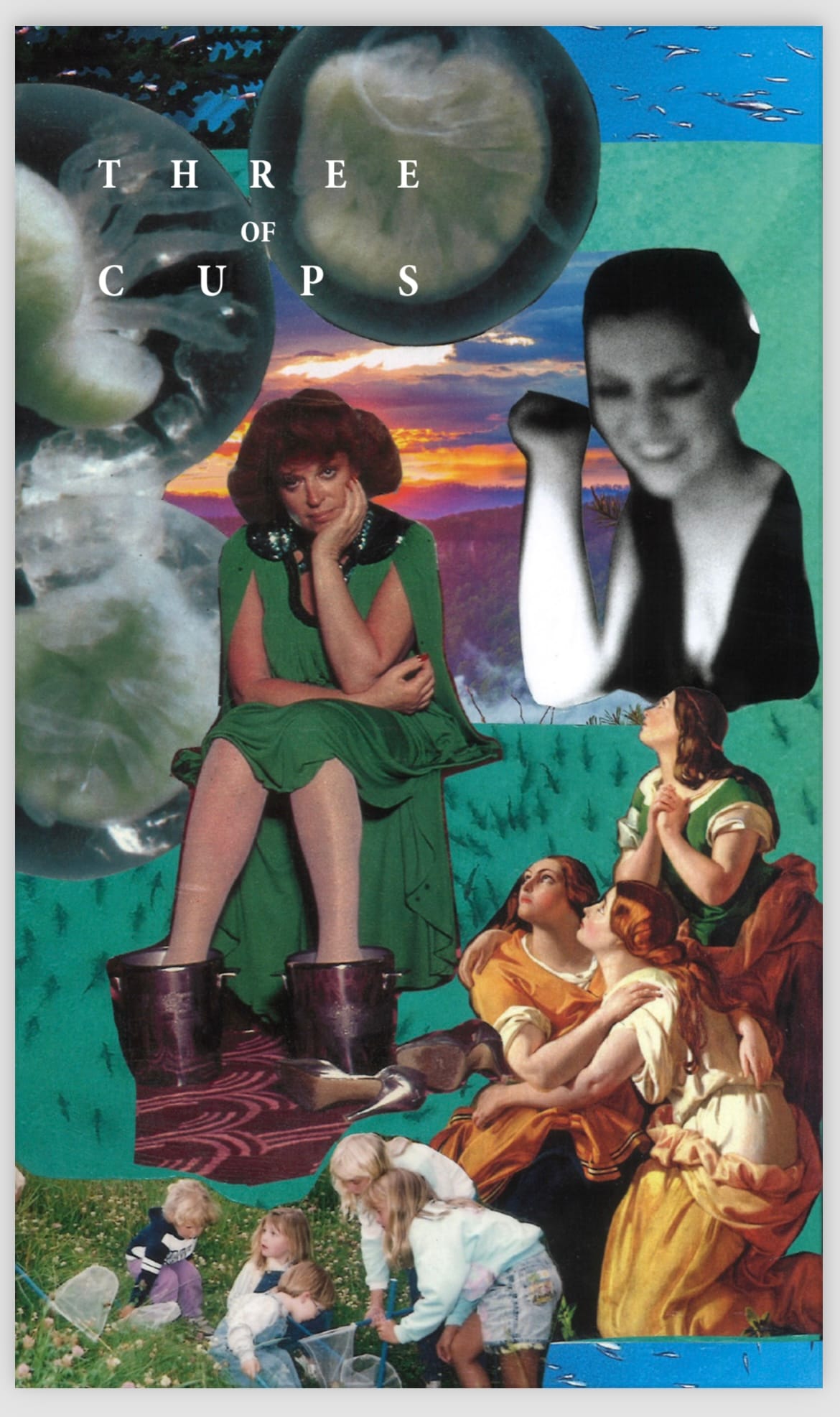
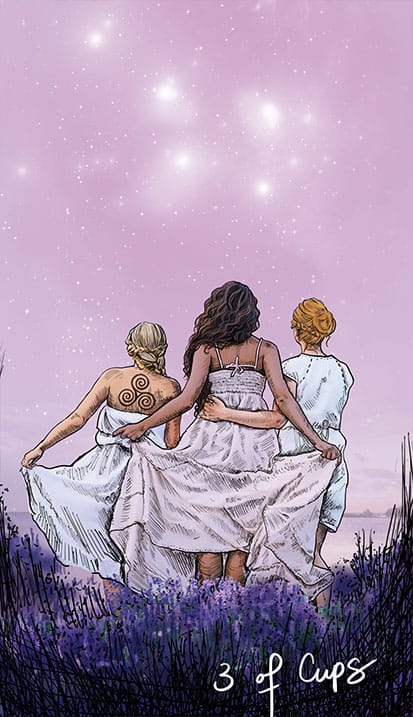
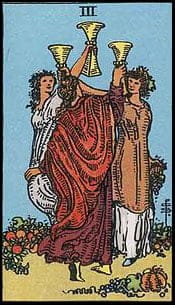
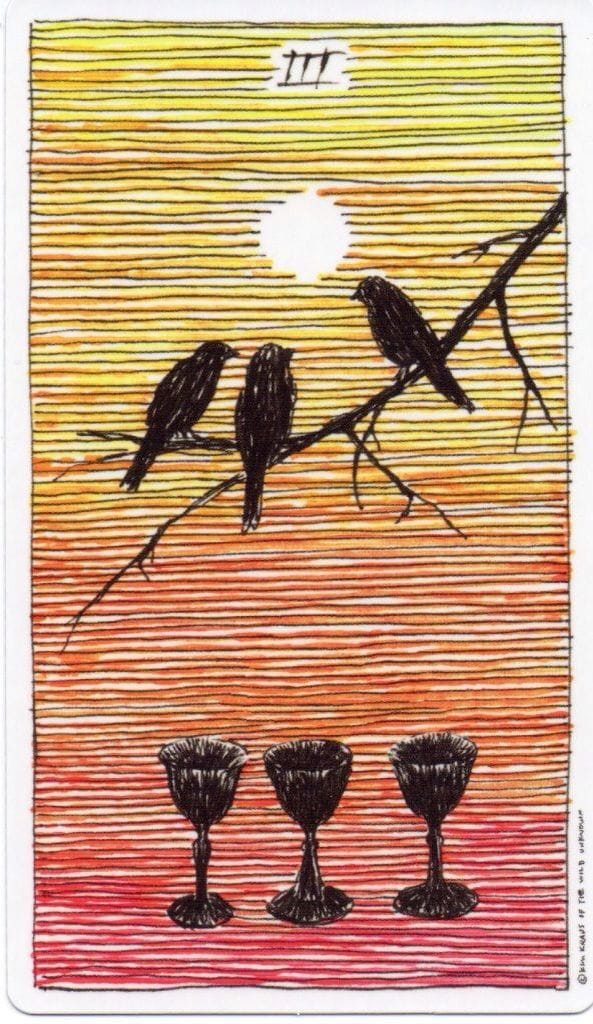
Recommendations
Where to find more of Emily St. James:
Emily is the reason I'm using this platform, and she has her own brilliant newsletter called Episodes which you should absolutely subscribe to RIGHT NOW.
Lost: Back to the Island, The Complete Critical Companion to the Classic TV Series by Emily St. James and Noel Murray. This is a book Emily just casually published this year. If you love the TV show Lost, this book is essential reading.
Podcast Like It's... co-hosted by Philip Iscove, Kenny Neibert, and Emily St. James
Find Emily on Blue Sky and Letterboxd
Some of my favorite examples of Three of Cups in Television:
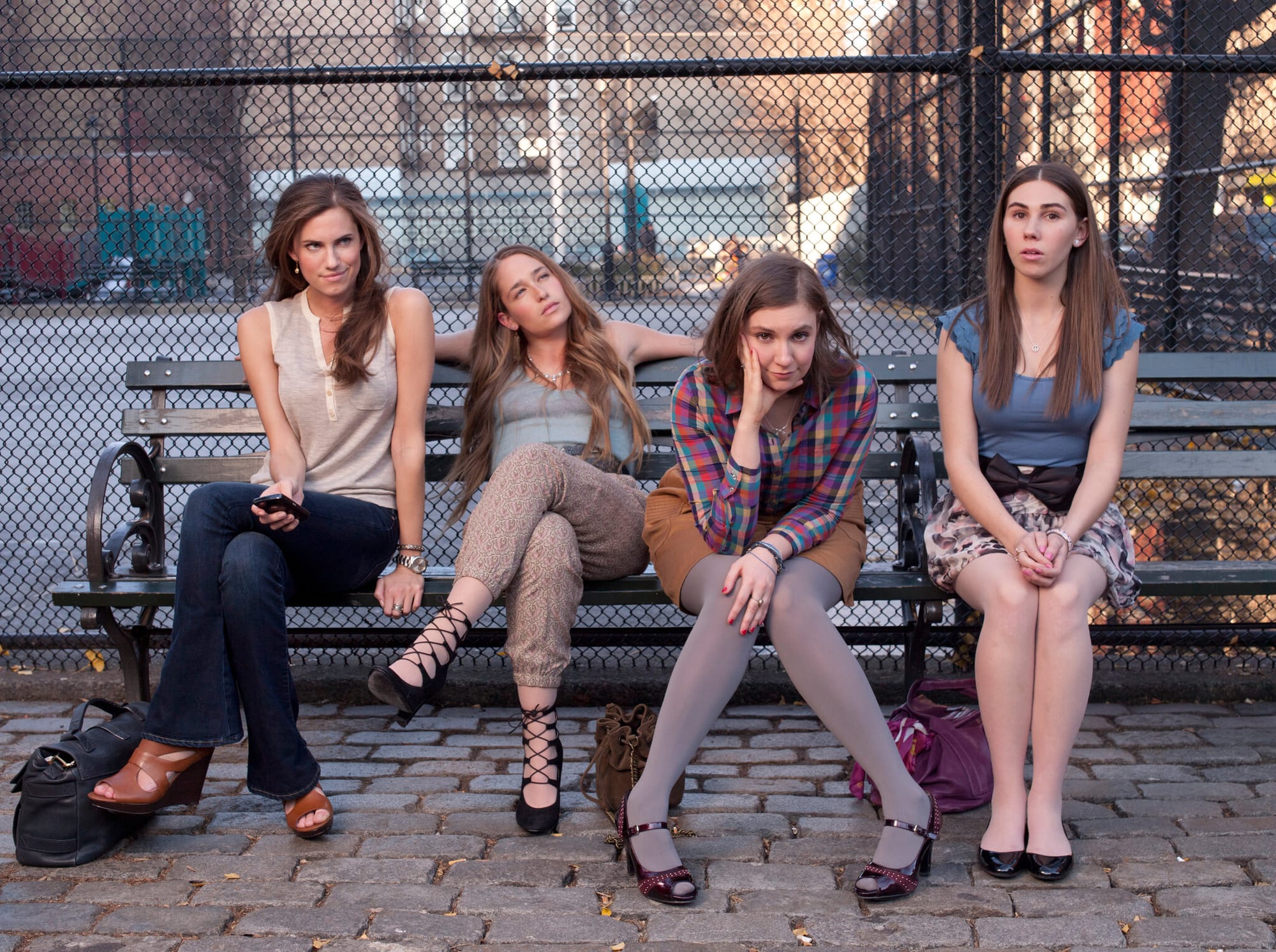
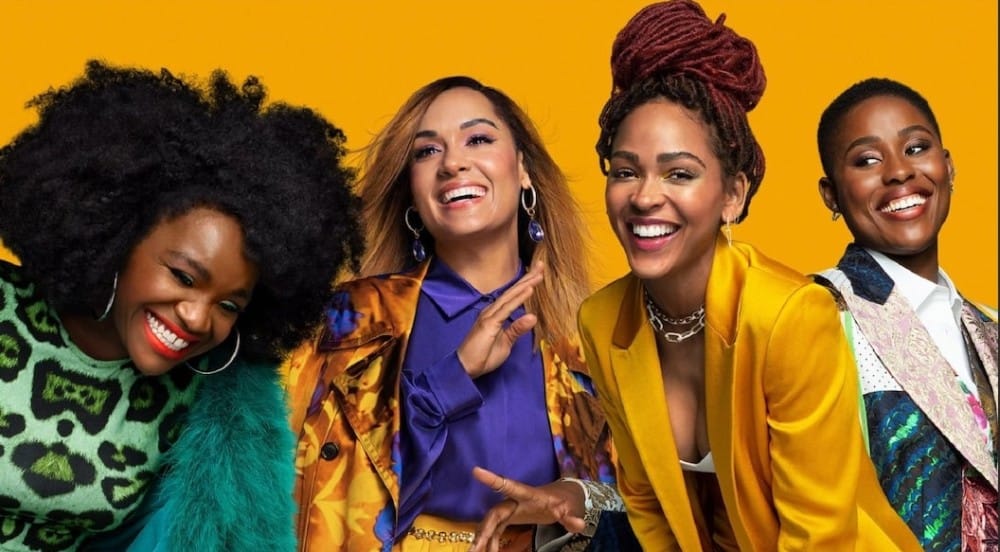
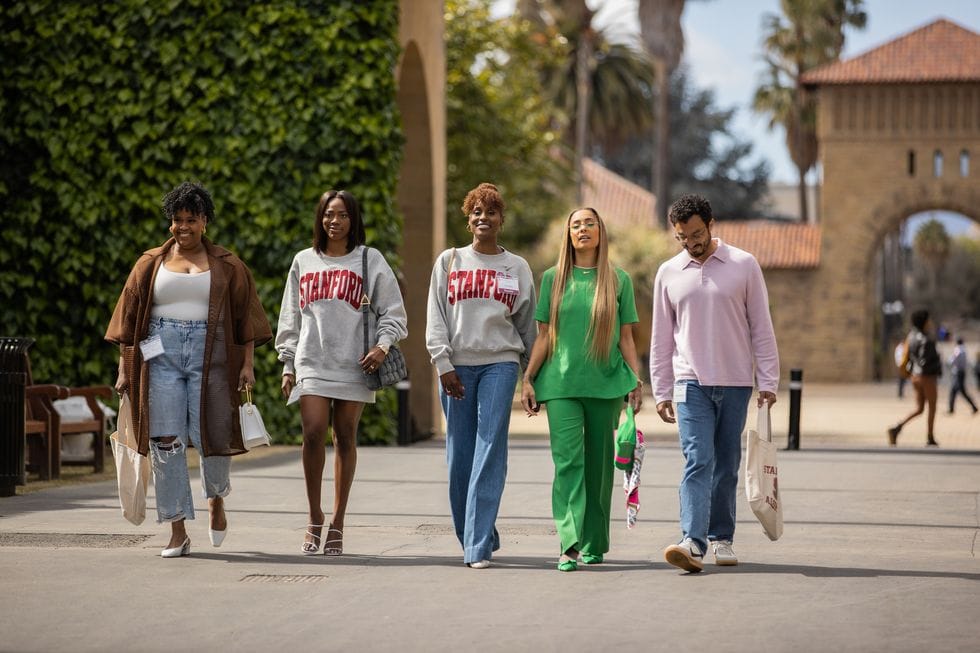
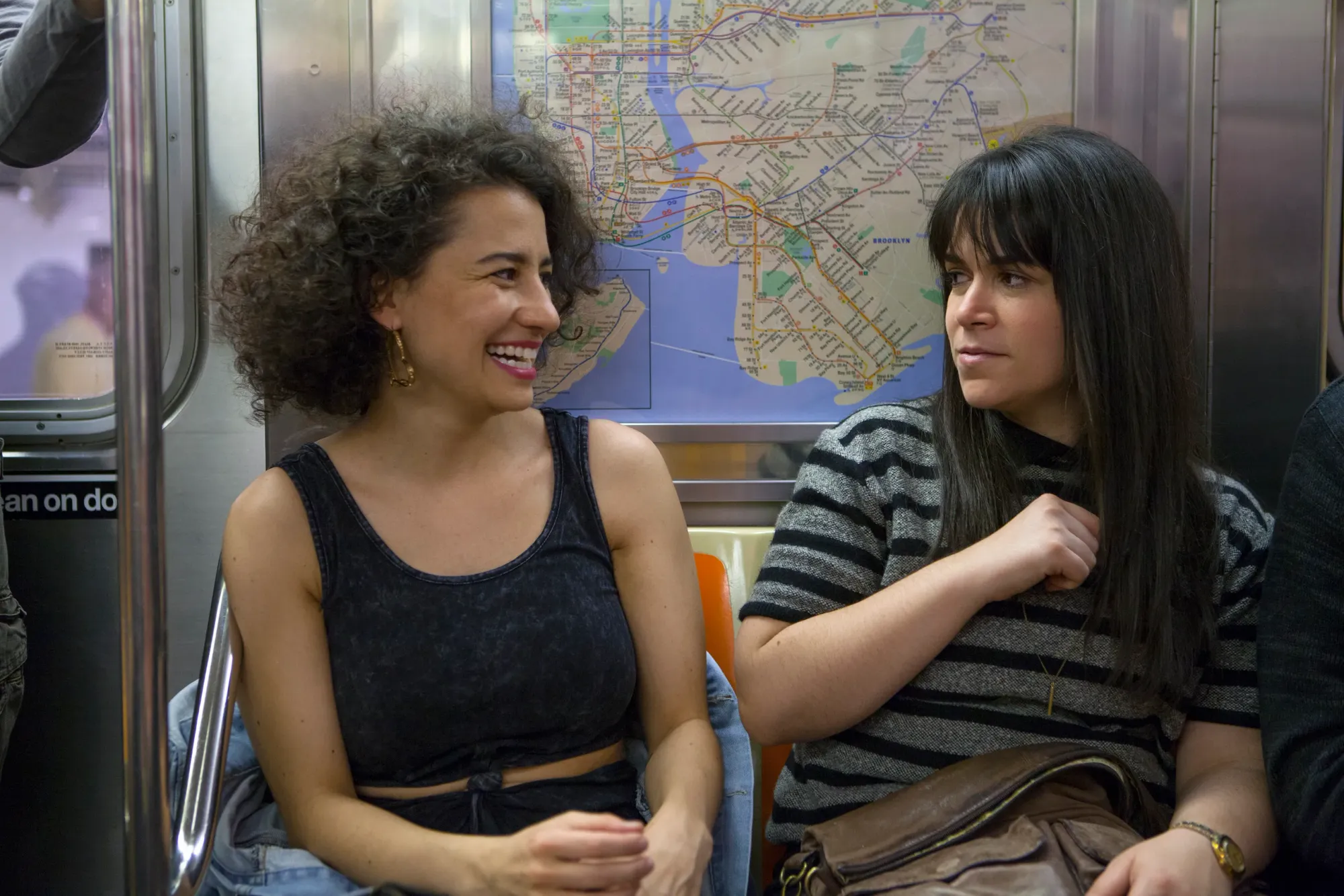
Three of Cups Books Recs:
The Other Significant Others: Reimagining Life With Friendship at the Center by Rhaina Cohen
We Should Not Be Friends: The Story of a Friendship by Will Schwalbe
